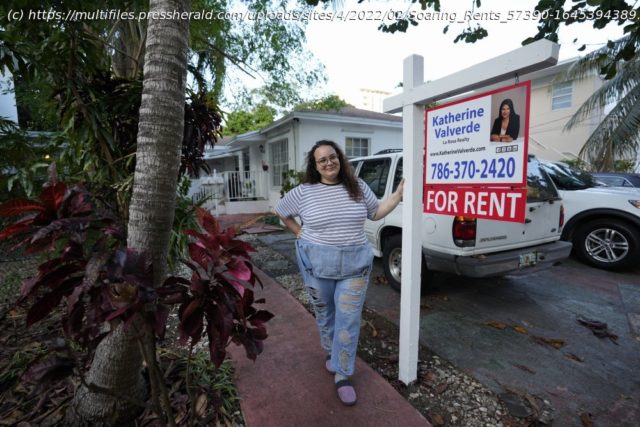Rents have exploded across the country, causing many to fall behind on payments, dig deep into their savings or downsize to subpar units.
Krystal Guerra’s Miami apartment has a tiny kitchen, cracked tiles, warped cabinets, no dishwasher and hardly any storage space. But Guerra was fine with the apartment’s shortcomings. It was all part of being a 32-year-old graduate student in South Florida, she reasoned, and she was happy to live there for a few more years as she finished her marketing degree. That was until a new owner bought the property and told her he was raising the rent from $1,550 to $1,950, a 26% increase that Guerra said meant her rent would account for the majority of her take-home pay from the University of Miami. “I thought that was insane,” said Guerra, who decided to move out. “Am I supposed to stop paying for everything else I have going on in my life just so I can pay rent? That’s unsustainable.” Guerra is hardly alone. Rents have exploded across the country, causing many to dig deep into their savings, downsize to subpar units or fall behind on payments and risk eviction now that a federal moratorium has ended. In the 50 largest U.S. metro areas, median rent rose an astounding 19.3% from December 2020 to December 2021, according to a Realtor.com analysis of properties with two or fewer bedrooms. And nowhere was the jump bigger than in the Miami metro area, where the median rent exploded to $2,850,49.8% higher than the previous year. Other cities across Florida — Tampa, Orlando and Jacksonville — and the Sun Belt destinations of San Diego, Las Vegas, Austin, Texas, and Memphis, Tennessee, all saw spikes of more than 25% during that time period. Rising rents are an increasing driver of high inflation that has become one of the nation’s top economic problems. Labor Department data, which covers existing rents as well as new listings, shows much smaller increases, but these are also picking up. Rental costs rose 0.5% in January from December, the Labor Department said last week. That may seem small, but it was the biggest increase in 20 years, and will likely accelerate. Economists worry about the impact of rent increases on inflation because the big jumps in new leases feed into the U.S. consumer price index, which is used to measure inflation. Inflation jumped 7.5% in January from a year earlier, the biggest increase in four decades. While many economists expect that to decrease as pandemic-disrupted supply chains unravel, rising rents could keep inflation high through the end of the year since housing costs make up one-third of the consumer price index.






